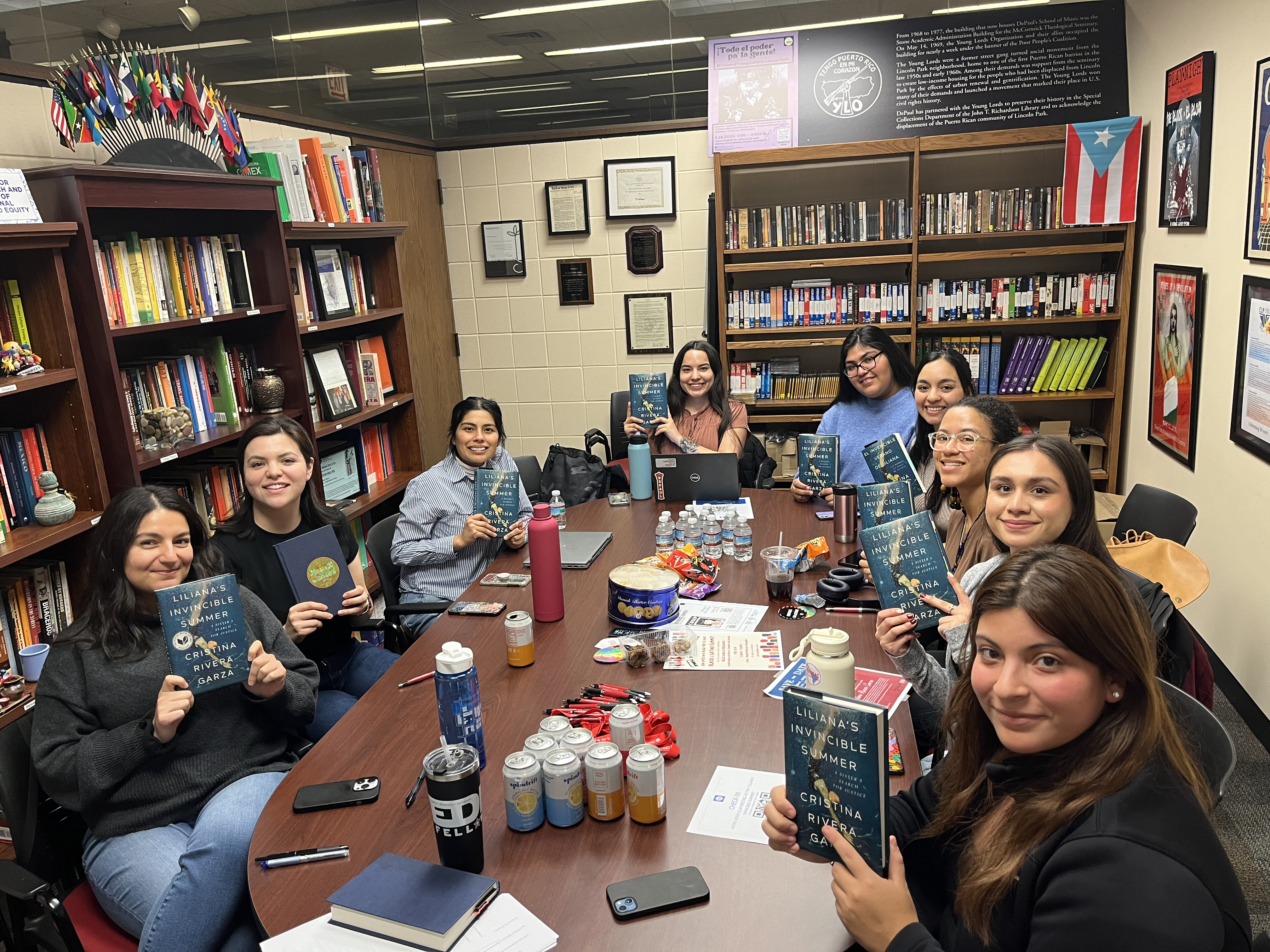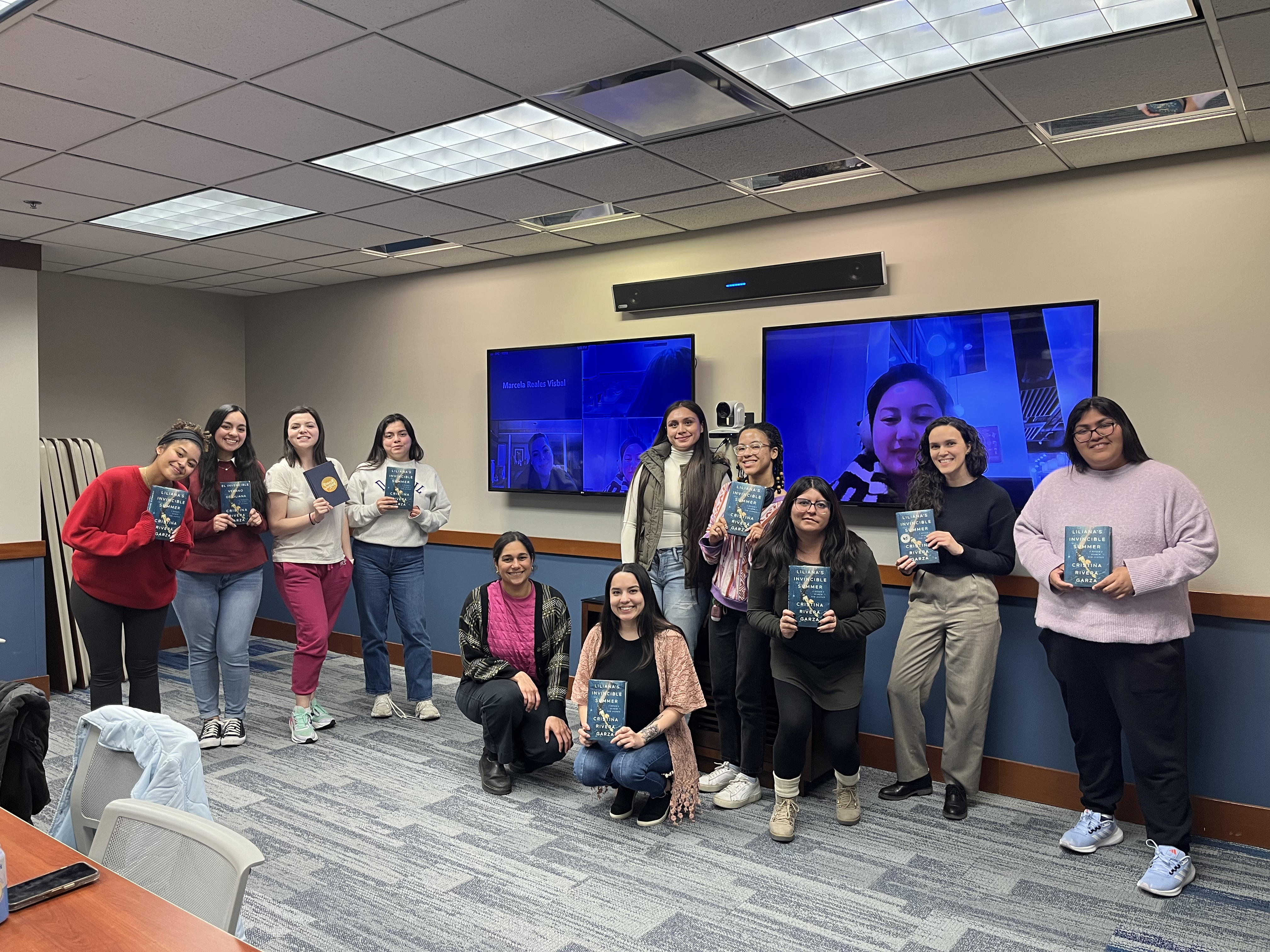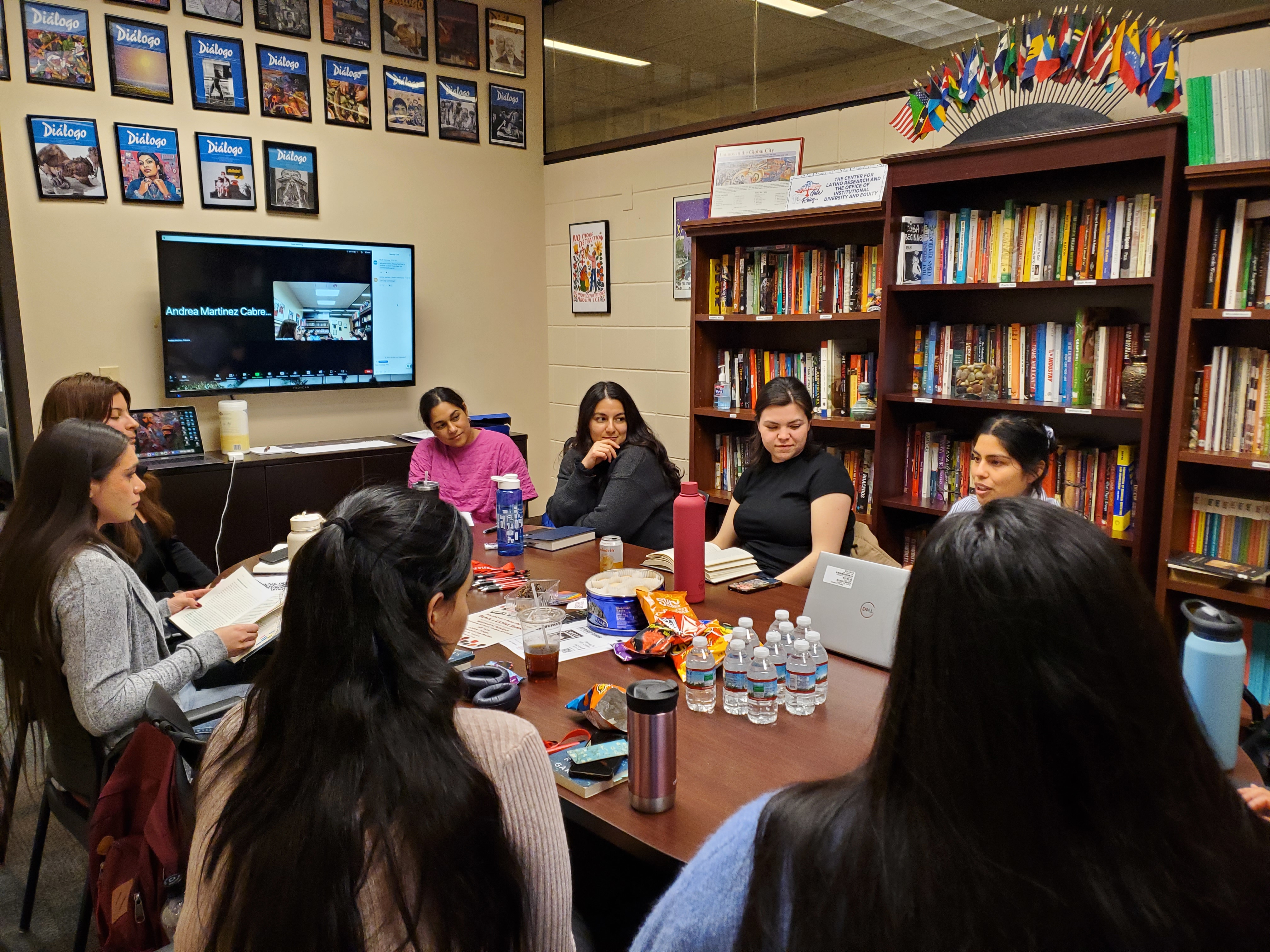
One book club meeting was held in DePaul's Center for Latino Research to introduce community members to the space. (Photo courtesy of Marcela Reales Visbal)

Participants in the Latinx Book Club could attend via zoom or in person to participate in the bi-monthly discussions. (Photo courtesy of Marcela Reales Visbal)
Under a blue sky, a 20-year-old architecture student scribbled thoughts in the corners of her notebooks and wrote letters to friends and cousins. She had friends over for drinks and planned beach vacations. Her story is pieced together by her sister in the book "Liliana’s Invincible Summer: A Sister’s Search for Justice" by Cristina Rivera Garza, the first book chosen by DePaul’s Latinx Book Club.
Rivera Garza will visit DePaul on April 17 for a hybrid event open to the public, where she will discuss her latest non-fiction book. Themes from the book intersect with the museum’s new exhibition, “Selva Aparicio: In Memory Of”, which explores themes of domestic violence.
Since the new year, students, faculty and staff have met to discuss the 2023 National Book Award-nominated book. Rivera Garza’s younger sister, Liliana Rivera Garza, was killed in 1990 by her ex-boyfriend, and the book explores her sister’s life through interviews with her friends and family and the letters she wrote before her murder. Rivera Garza’s writing takes on the topics of femicide — or the killling of women and girls based on their sex — as well as intimate partner violence and feminism in Mexico and other Latin American countries.
The book club is a collaboration between the Center for Latino Research, the Latinx Cultural Center, the DePaul Art Museum and University Counseling and Psychological Services. Marcela Reales Visbal, assistant director of the Center for Latino Research, spearheaded the project and ensured the club was a safe space for Latinos in DePaul’s community to come together.
“We started the book club to get students involved and introduce them to community spaces where they can spend time and meet people,” Reales Visbal says.
A safe space for heavy discussions
Club members have shared thoughts about the writing of the book itself and how it helped them think about their own experiences differently. For one graduate student, Grecia García, the book hit very close to home.
“I’m actually from Toluca, the city where the author and her sister grew up,” García says. “It’s funny because I would describe my city the same way that she does. I see myself in a lot of the descriptions in the book, so I’ve had multiple feelings about it.”
 Club members discuss the themes of the book and how it connects to their experiences. (Photo by Jade Walker/DePaul University)
Club members discuss the themes of the book and how it connects to their experiences. (Photo by Jade Walker/DePaul University)
García excitedly talks about the book club with her family in Mexico. Many of the book club’s discussions have stuck with her for weeks after the meetings and have inspired her to continue engaging with other Latinas about feminism.
“When I moved to the States, I noticed how differently feminism is talked about in Mexico and Latin America. This book was written right after the latest feminist wave in Mexico, and I remember hearing stories from women who were involved in the movement. That’s why this has given me the urge to keep talking about it. It’s not over! We still need to do lots of things!” Garcia says.
Due to the topic's weight, the book club organizers prioritized creating a safe and supportive environment for the discussions. The meeting starts with a discussion of ground rules and ends as Areli V. Contreras, a mental health clinician from University Counseling and Psychological Services, leads the group through a mindfulness exercise. Contreras, along with other UCAPS staff members, are there to help students navigate any heavy emotions that may come up in discussion.
“It’s always been the priority to ensure that the space feels good and safe for students. So far, I think it has worked beautifully. Progressively, we have all become very comfortable and there’s so much mutual respect,” says Flor Reza, program manager of the Latinx Cultural Center.
Fostering a sense of belonging
“A lot of book clubs only meet once after you read the book. We wanted to make sure we had multiple meetings and use this as a way for students to get to know different spaces on campus,” Reales Visbal explains. Each meeting has been held in a different space on campus, including the DePaul Art Museum, the Center for Latino Research, the Loop Student Center and the Latinx Cultural Center.
“One of the many parts of my job here is to do programs to create a sense of belonging and community for students. I think the book club succeeded in doing that,” says Reza, a core collaborator in the book club’s creation. Reza is also part of the Hispanic Serving Institution committee that brings together faculty, staff, administrators and students to work on DePaul’s initiative towards becoming a Hispanic Serving Institution.
“Becoming an HSI is a task that will require a lot of thought and intentional work. It’s a happy coincidence that the club can contribute to that effort,” Reza says.
The Reading and Conversation with Cristina Rivera Garza event will be held at the DePaul Art Museum on April 17 at 6 p.m. Register for the hybrid event here.
Jade Walker is a student assistant of media relations and communications in University Communications.